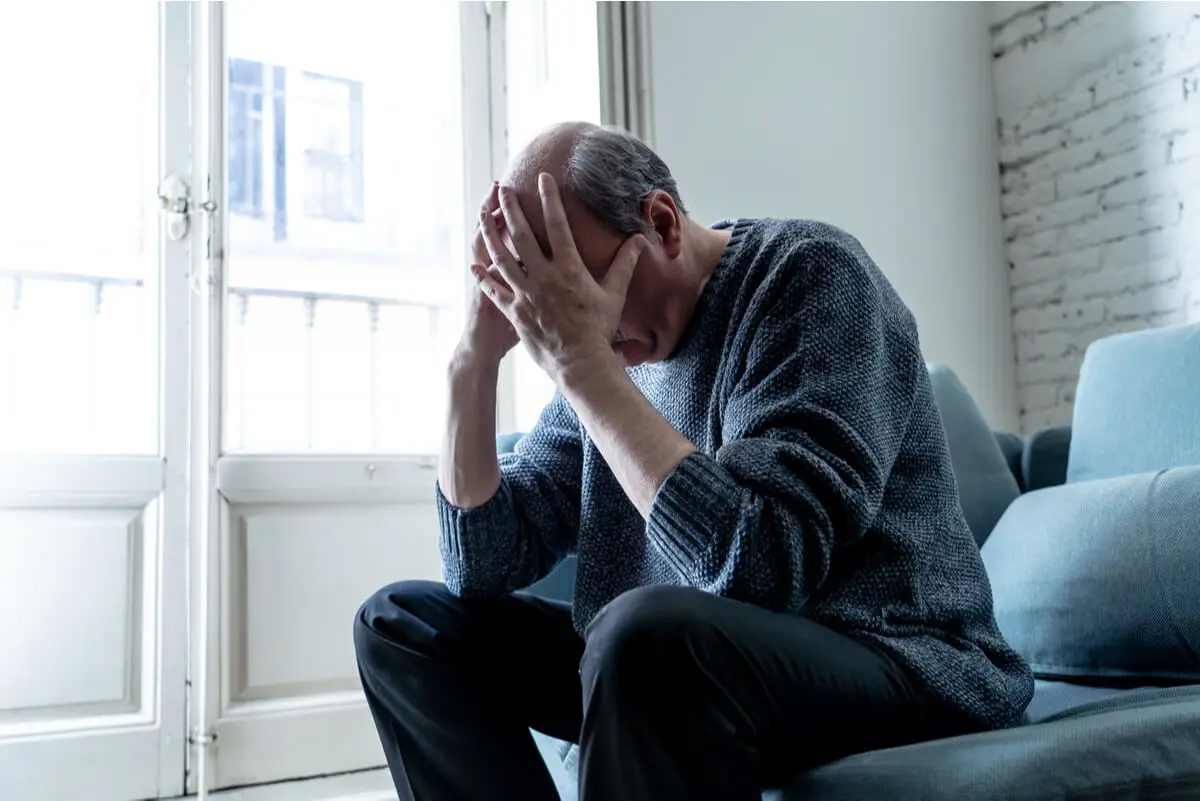Sunset Syndrome in the Elderly: How Can it Be Treated?

Dusk is setting in, and with it come the negative symptoms for seniors diagnosed with elderly sundown syndrome. This is how the geriatric condition is experienced by people with dementia, depression, or Alzheimer’s disease.
Those with sundown disorder experience anxiety, despair, agitation, irritability, and pessimism. The condition is also known as sundowning and impacts between 4:30 in the afternoon and 11:00 at night. As the sunlight fades, behavioral disturbances occur and worsen with a person’s cognitive decline.
Let’s take a closer look.
The symptoms of sundown syndrome
Although some people show several signs of sundowning, others may only present one. However, people with this condition usually exhibit screaming, nervousness, sadness, crying, whispering, stubbornness, frustration, and a sense of danger at this time of day. There are also those who repeat phrases, hide, act violently, hallucinate, hide objects or wander around too much.
Research published in the Revista Argentina de Clínica Neuropsiquiátrica correlates the moods of the elderly with the incidence of the sunset. The study states that confusion and disorientation are expressed through anxiety, fear, irritability, apathy, and depression.
The episodes usually start at the same time every day and last as long as the sun goes down.
What can cause it?
A potential biological trigger for sundowning is circadian rhythm disturbance. This refers to the misalignment of daily cycles that correspond to light and dark, causing physical, mental, and behavioral changes.
In addition, pattern tracking has pinpointed the following factors:
- Too little or too much light can lead to confusion and fear, especially in people with vision problems.
- Exhaustion at the end of the day, especially when there are things left to do.
- Social isolation, triggered by limited mobility.
- Unfamiliarity with the environment, as well as unexpected changes to their surroundings.
- Unmet physical needs, such as hunger, thirst, sleep, or hygiene.
- Hormonal imbalances and disruptions of the internal biological clock.

You might like: Circadian Rhythms: How Do They Influence Our Health?
What to do for a person who has sundown syndrome
It’s necessary to know the person suffering from the syndrome well to help them. For example, establishing behaviors and routines at a specific time allows you to act appropriately.
Environmental measures, such as changing the patient’s room or adjusting the lighting, are also helpful. You can also plan activities that involve little effort so that the elderly person can occupy themselves during the day and improve their sleep at night.
Similarly, it’s essential to apply a routine for eating. In fact, the Alzheimer’s Foundation Spain explains that these people tend to eat less, and as the disease progresses, they may wander for long periods, which leads to agitation.
As for pharmacological treatment, it’s a good idea to turn to medication or supplements when there are symptoms of depression, sleep disorders, or very high anxiety levels. A doctor must approve and prescribe the remedies, and the caregiver has to pay attention to the possible side effects.
When is it necessary to see a doctor?
You should seek medical assistance as soon as signs of restlessness or despair appear with the onset of dusk. During the first episodes, sundowning is often confused with delusions.
The difference is that delusions can occur at any time of the day. With the help of the specialist, in addition to distinguishing the conditions, you’ll be able to determine which medications are useful to relax the person who experiences this condition.
You might like to read: The Aging of the Immune System and How to Fight It
Lifestyle and recommendations for sundown syndrome
Caregivers of elderly people with sundown syndrome should collaborate to minimize the alterations with the guidelines mentioned below:
- Avoid daytime naps: The less sleep a person gets during the day, the better their rest at night. However, if you notice that naps are beneficial for someone, they should not be discouraged.
- Follow up on their diet: Take note of changes or patterns linked to certain foods. Also, make sure to balance their food while avoiding large proportions of sugars and caffeine. Alcohol, soft drinks, and sleep-disrupting substances are all harmful.
- Plan activities: Schedule walks or excursions when the patient is more active, but try not to do so many daily activities to overwhelm them.
- Exercise: Moderate sports that increase muscle strength help control aggressive behavior, improve their appetite, relieve tension, and reduce stress levels.
- Minimize the noise: Replace the sound of radios, telephones, and televisions with relaxing music. Anything that involves noise should be moved away as sunset approaches.
- Work on the lighting: Illuminating the rooms diminishes the effects of the night. Also, at dawn, the patient should be exposed to artificial or natural light so they don’t wake up surrounded by darkness. Light therapy is an alternative for the treatment of insomnia in old age.
- Anticipate surprises: If you create a routine that anticipates what may happen, this can lessen the stressful impact of any surprises.
- Adhere to medication: Sundowning is more bearable without skipping medication. Make sure they always adhere to their doctor’s recommendations.

The role of the caregiver in helping someone with sundown syndrome
A caregiver requires patience and knowing how to react to an episode. It’s essential to remain calm and not argue, since the older adult is not in control of the syndrome and their attitudes are not intentional.
It’s a good ideato validate the person’s feelings, explain that you’re listening to them, convey calmness, and lead them to an activity that will restore their sense of calm. Also, the family or those living at home must adhere to the measures to improve comfort.
Most importantly, if the caregiver needs help, they have to ask for it. Institutions such as the Spanish Alzheimer’s Confederation or the Alzheimer’s Foundation of America can help provide guidance in these cases.
All cited sources were thoroughly reviewed by our team to ensure their quality, reliability, currency, and validity. The bibliography of this article was considered reliable and of academic or scientific accuracy.
- Alimentación sana y adecuada a su estado. Fundación Alzheimer España. 2017. http://www.alzfae.org/fundacion/669/alimentacion-sana-y-adecuada-a-su-estado
- Confederación Española de Alzheimer. https://www.ceafa.es/es/que-comunicamos/noticias/sundowning-en-el-alzheimer-el-mal-que-llega-con-las-sombras
- Fundación del Alzheimer de América. https://alzfdn.org/es/
- Hoja informativa sobre los Ritmos Circadianos. Instituto Nacional de Ciencias Médicas Generales. Estados Unidos; 2017. https://www.nigms.nih.gov/education/Documents/Spanish_circadian.pdf
- Moreno Toledo A. Correlatos de incidencia del ocaso en estados anímicos, agitación y conducta agresiva en ancianos: Síndrome Sundowning. Revista Argentina de Clínica Neuropsiquiátrica. Argentina; 2007. http://www.alcmeon.com.ar/14/53/toledo-5.pdf
- Amariles P, Faus M, García-Corpas J. Terapia lumínica: efectividad en el tratamiento del insomnio en pacientes de edad avanzada. Atención Primaria. Sociedad Española de Medicina de Familia y Comunitaria. España; 2008. https://www.elsevier.es/es-revista-atencion-primaria-27-articulo-terapia-luminica-efectividad-el-tratamiento-13116159
This text is provided for informational purposes only and does not replace consultation with a professional. If in doubt, consult your specialist.








